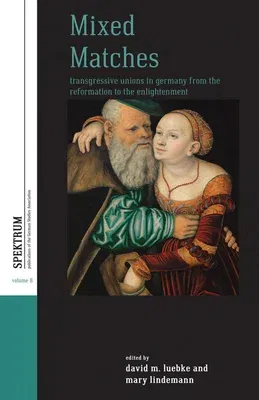Mixed Matches: Transgressive Unions in Germany from the Reformation to the EnlightenmentPaperback, 1 June 2017

Qty
1
Turbo
Ships in 2 - 3 days
In Stock
Free Delivery
Cash on Delivery
15 Days
Free Returns
Secure Checkout

Part of Series
Spektrum: Publications of the German Studies Association
Part of Series
Spektrum: Publications of the German Studies Association, 8
Print Length
252 pages
Language
English
Publisher
Berghahn Books
Date Published
1 Jun 2017
ISBN-10
1785335243
ISBN-13
9781785335242
Description
Product Details
Book Format:
Paperback
Country of Origin:
US
Date Published:
1 June 2017
Dimensions:
22.86 x
15.24 x
1.37 cm
ISBN-10:
1785335243
ISBN-13:
9781785335242
Language:
English
Location:
New York, NY
Pages:
252
Publisher:
Series:
Weight:
344.73 gm